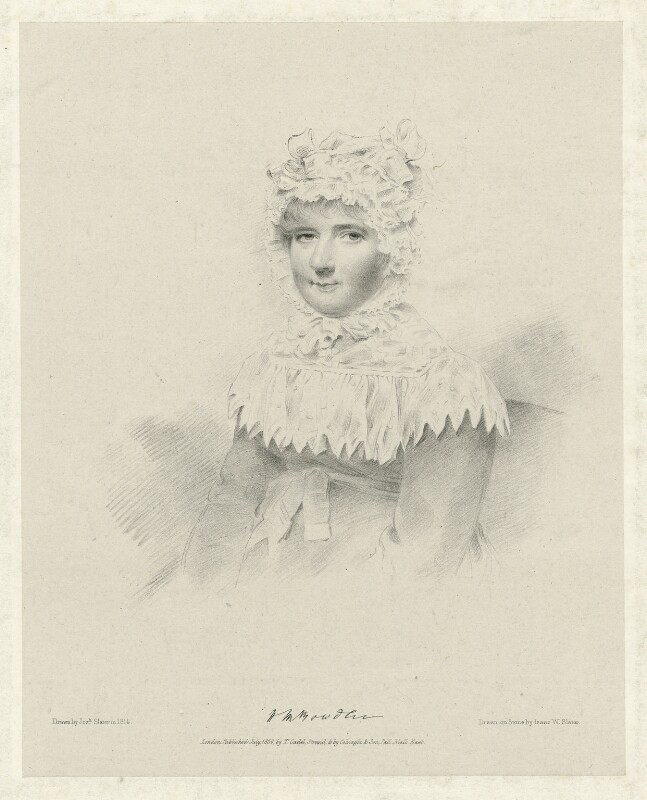
by Theodore Dalrymple
In 1807, Harriet Bowdler edited The Family Shakespeare, a version of the Bard from which anything vaguely salacious had been expunged. Her brother, Thomas, did the same for Gibbon’s Decline and Fall, thus giving the English language a delightful new verb: to bowdlerize, that is, to remove supposedly offensive language from a literary work, thereby weakening it and reducing its impact.
I remember a time when we laughed at the Bowdlers, and the bowdlerizers, as being absurd, prissy, and prudish. We thought that, being fully mature for the first time in human history, we had overcome both the need and the impulse to bowdlerize. How wrong we were.
The desire to bowdlerize, it seems, springs eternal. The latest victims of bowdlerization are the children’s books of Roald Dahl, which have now sold 250 million copies worldwide. Children love them because—dare I say it—they are transgressive. Children, necessarily dominated by adults and required by them to control their impulses, delight to see adults in all their hideousness, physical and moral.
In the new versions proposed by the publisher, Puffin, words such as “fat” and “ugly” have been removed because some people are ugly, and many are fat (many more than when Dahl wrote the books, in fact), and therefore might be upset by the use of these words and suffer some kind of crisis. It is the task of publishers, apparently, to prevent feelings of discomfort among readers, or at least designated groups of readers. Children are to be indoctrinated into not being disgusted by ugliness.
The new versions of Dahl’s books contain hundreds of amendments, some pointless, most implicitly doctrinaire, and others outright mendacious—for example, the dedication of a whole book to all doctors, which Dahl never made.
Words such as “father” and “mother” have become offensive not because some children are orphaned, as was always the case, but because some children have two fathers or two mothers, and even more have no fathers. Think of the distress the poor little mites experience if they read the words “father” or “mother!”
“Mummy’s dressing table” has become “the dressing table,” and “father’s toolshed” has become “the toolshed,” to avoid any suggestion that mummies and daddies just might have different tastes or priorities. “Maybe that will brighten up those horrid brown teeth of hers” is now “Maybe that would brighten up her smile,” to avoid the dreadful sin of aesthetic preference. “Waving her fat arms” becomes “Waving her arms” to avoid the judgment that fatness in arms is not attractive. “Ladies and gentlemen” becomes “folks.”
The sensitivity readers who go through books anticipating such distress—prevention is so much better than cure—have an immense and never-ending task before them (they need never fear unemployment), for they can always find new fears to anticipate and assuage. Just think of the work necessary to be done on Alice’s Adventures in Wonderland and Through the Looking Glass. Why the White Rabbit, for example? Why not the Cross-Breed Rabbit? As for the White Queen, could there be any character more redolent of white supremacy? Surely the Mad Hatter should henceforth be the Neurodiverse Hatter? And being against the death penalty as we are, surely “Off with his head!” should now be “Give him community service!”
The editing is an insult to the sophistication of children, who quickly become aware of the difference between literal and other interpretation of words. This is forgotten, it seems, by some of their elders and betters.
Perhaps the sensitivity readers aim not merely to render certain thoughts and judgments impossible for children but also to create a world in which they will enjoy perpetual powers of censorship—and employment, courtesy of giant corporations such as Netflix, owner of the Roald Dahl Story Company.
Mrs. Bowdler was merely puritanical; the sensitivity readers combine puritanism with political tyranny. Mrs. Bowdler, meet Joseph Stalin.
First published in City Journal.
- Like
- Digg
- Del
- Tumblr
- VKontakte
- Buffer
- Love This
- Odnoklassniki
- Meneame
- Blogger
- Amazon
- Yahoo Mail
- Gmail
- AOL
- Newsvine
- HackerNews
- Evernote
- MySpace
- Mail.ru
- Viadeo
- Line
- Comments
- Yummly
- SMS
- Viber
- Telegram
- Subscribe
- Skype
- Facebook Messenger
- Kakao
- LiveJournal
- Yammer
- Edgar
- Fintel
- Mix
- Instapaper
- Copy Link







2 Responses
Ought there to be ‘age appropriate’ forms of literature? If so, what are the rules of presentation? Is anyone to be protected from anything?
Ought yesteryear’s Classic Comics to have been banned?
Is a picture of Robinson Crusoe pounding sand on his island not worth a 1000 words — at least for an inept reader?